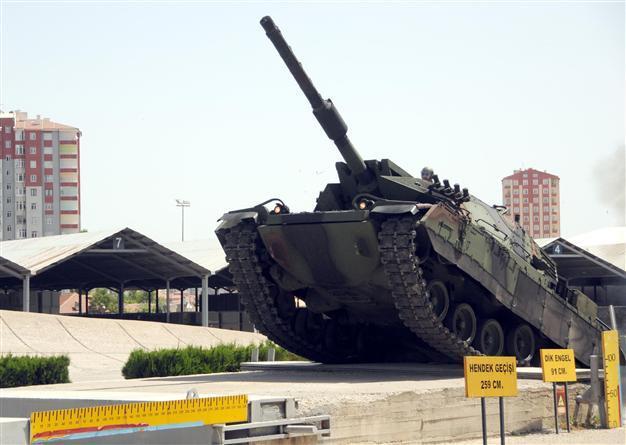Disharmony between political-military bureaucracy thwarts Turkish defense industry: Audit
Cengizhan Çatal ANKARA

DHA Photo
A new report by Turkey’s top official audit body has harshly criticized the defense industry’s performance in recent years, citing discrepancies between the political and military bureaucracies as the main reason for “insufficient levels of development,” despite billions of dollars being invested in the sector.
“Turkey hasn’t reached the desired level in terms of defense industry development despite years of high defense spending,” said the report, prepared by the State Audit Board (DDK) upon President Abdullah Gül’s request.
The report, which reviewed the activities of the Undersecretariat for the Defense Industry (SSM) for the years 2010 to 2012, concludes that the main structural problem hampering improvements in the sector came from traditional approaches to the decision-making process.
“Traditional approaches couldn’t be removed from the defense policy decision-making process, despite democratic improvements [within the defense industry] in recent years and improvements in public management,” the report said.
The report also states that the bureaucratic relationship between the defense industry and politicians is responsible for the failure in attaining the desired levels of development in the industry.
“The bureaucratic structure of the military and defense industry kept their habits of working without getting sufficient political input on policies and strategies that needed to be put in place. As a result, the connection that is needed between politics and practice couldn’t be formed, leading the political institution to ignore policies that it doesn’t see as necessary and bureaucracy continuing to flourish in every field,” the harsh-toned report said in its concluding section.
‘Weak’ competitiveness The DDK report shed light on how levels of Turkey’s defense expenditure continue to remain high, despite a global decline in military spending following the end of the Cold War in the early 1990s.
Turkey became the 24th top arms exporter in the world and the 11th top arms importer during the 2008 to 2012 period, in parallel to a rise in research and development (R&D) spending over the same period.
However, the DDK report argues that the Turkish defense sector could not reach sufficient levels of competitiveness in the international market despite the high levels of spending in R&D.
“It is seen that defense industry companies in our country produce in order meet domestic demand rather than selling [their products] abroad,” the report stated.
